London Walking Weekend: Most weekends since the 1980s I’ve spent at least one day walking around London, often on my own but more recently mainly with others carrying banners and placards. But Saturday 6th June 2009 was a little different as it was designated as the Walking Weekend of the Story of London Festival, and I went to a couple of free events put on by the Heritage of London Trust and Pevsner Architectural Guides in east London, as well as doing a little on my own.
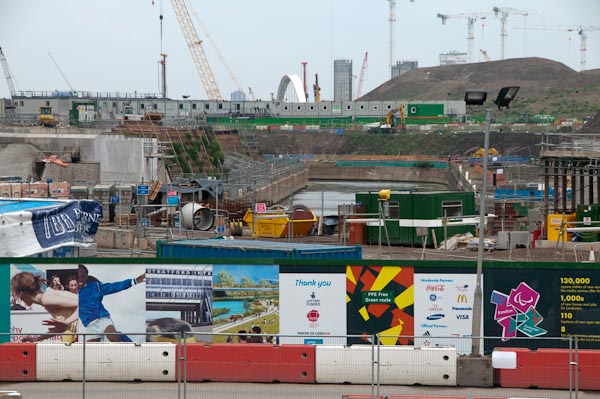
On Saturday morning I took a guided tour of St Mary Magdalene’s Church in East Ham led by Tara Draper-Stumm for the Heritage of London Trust, a charity which does a great deal of work in restoring buildings and sites in danger across the capital.

It was a great guided tour of one of London’s most interesting churches, Grade 1 listed and “claimed to be the oldest parish church still in weekly use in Greater London“, large parts dating from the first half of the 12th century but of course greatly added to, altered and restored over the centuries, most recently in 1965-6.

But I didn’t take any pictures, so nothing to post here from this tour. Back in the 1990s when I was a regular contributor to our National Building Record I often found myself waiting in the library there for my appointment and would pull a box file for an area of London from their shelves – to find it almost entirely full of photographs of old churches, many taken by their vicars back in the day when many were gentlemen of leisure with the money to take up photography. It rather put me off photographing them and on this morning I decided to simply experience the event, listen and look. But there is a fine illustrated tour of the church online.

From there I had some time to spare before the afternoon walk and went to visit the huge building site on Stratford Marsh for the London Olympics, by then sealed off by miles of blue fence. It was something of a rush to take pictures to later make into panoramas as well as some other pictures before getting back on the DLR from Pudding Mill Station to Poplar.
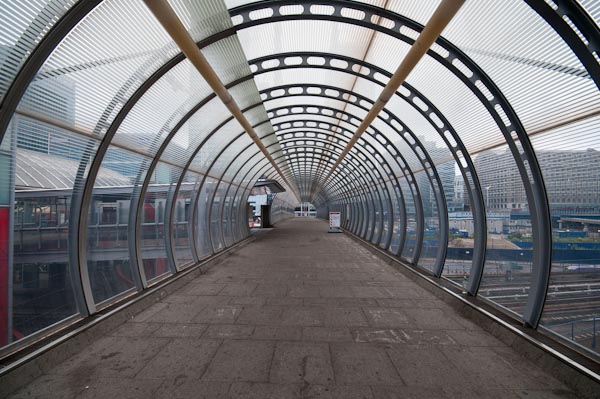
There I met someone whose name had been familiar for many years but I’d not met, Bridget Cherry, a leading architectural hisotrian whose name appears on the essential works for anyone with an interest in the subject, The Buildings of England, begun by Nikolaus Pevsner in 1951. She worked on many volumes, some with him, as well as becoming General Editor.
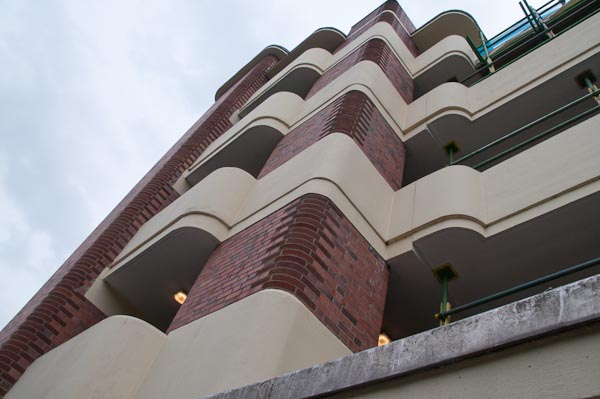
These books remain essential guides to anyone with an interest in architecture in England, and I walked most of the ‘perambulations’ in London from them, although my interests were rather wider than the buildings contained in them and my walks also took me to many other places. You can read more about this walk on My London Diary. Here I’ll include just a few of the pictures I took with captions and some brief comments.
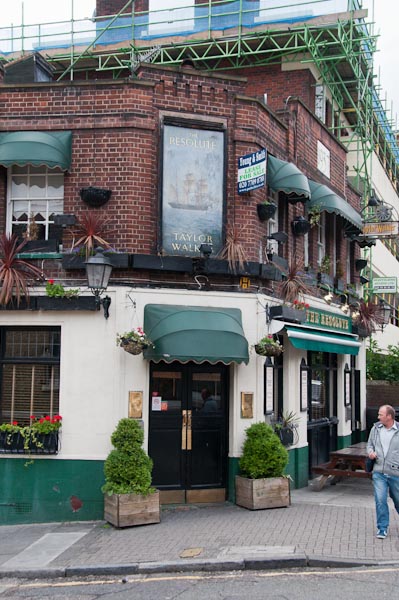
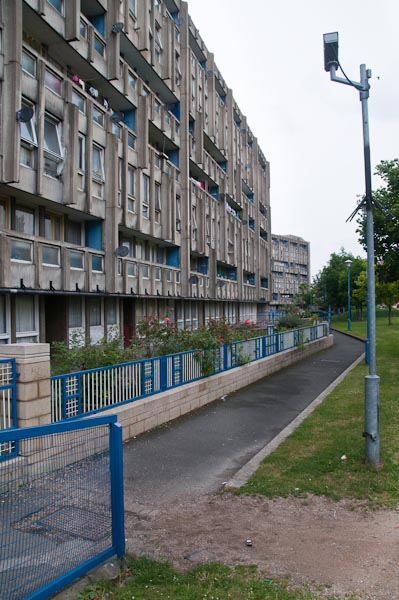
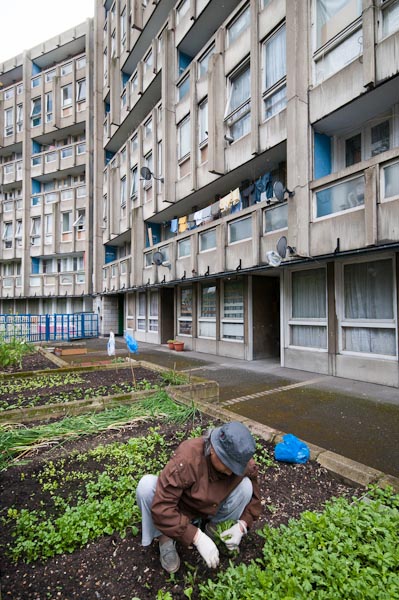
Robin Hood Gardens, designed in the late 1960s by Alison and Peter Smithson and completed in 1972, gained international recognition for its Brutalist architecture and was the highpoint of the walk. Its two long blocks enclosed a large garden area which was suprisingly quiet despite the site being alongside of one of London’s busiest roads. Neglected for years by Tower Hamlets council it was used to house many ‘problem’ tenants but by 2009 had largely recovered and become well regarded by those who lived there.
But the local authority had already decided to demolish it as a part of a ‘regeneration’ scheme. Attempts to list it scandalously failed – despite its international architectural significance – probably to protect the profits of the developers and demolition began in 2017 but was only finally completed in March 2015. Listing of large council estates became largely impossible under New Labour and expensive, highly profitable and environmentally disastrous schemes regeration schemes providing expensive but largely poorer quality buildings with little social housing have since obliterated estates – including some fine architecture – which could have been refurbished to modern standards at a fraction of the cost.

You can see many more of the buildings on the Poplar trail on My London Diary at Bridget Cherry – Poplar Trail.
Flickr – Facebook – My London Diary – Hull Photos – Lea Valley – Paris
London’s Industrial Heritage – London Photos
All photographs on this page are copyright © Peter Marshall.
Contact me to buy prints or licence to reproduce.